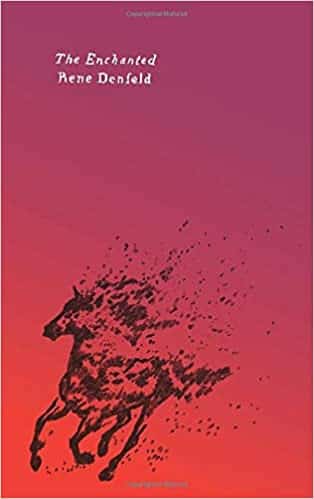by Amy Challenger
Connecting has never been easy, my overweight rescue coonhound reminds me with his fervent stare. He once refused eye contact when I found him at a dusty Northern California farm nine years ago running in circles as if entirely disconnected from other beings. This disconnected feeling has become one most of us have suffered with this year. We’ve had to find a way out of our own little heads, seeking a thread to others in strange ways — squishing eyes over masks, staring through screens, and waving at mouthless friends in parking lots or at bonfires. I found a way to build a bridge to my sick mom and other women this year, all the way over the Atlantic, in a way I wouldn’t have imagined without the pandemic..
In March 2020 after lockdowns began in Switzerland, where I live with my husband and children— my asthmatic then 78-year-old mother coughed heavily on her couch in South Carolina. She struggled to breathe on Facetime causing even her fox terrier Harry to point his long nose to the side. I was petrified. I’d just returned from Northern Italy where crowds of masked passengers packed my train, and truckloads of dead bodies appeared on my Ipad screen. To me, the pandemic was no distant myth like it still was for many of my American friends. So when my mom hacked, I said, “Get tested.’’ Naturally, she brushed me off. I’m the family worrier, afterall, and people were still spreading the ridiculous myth that only those who’d traveled to China could have COVD-19. A week later, her symptoms had made her so weak she could hardly walk. So she finally got to the doctor who diagnosed her with pneumonia. And due to a lack of access to COVID test kits, she still didn’t know if she had the virus.
At that point, my mom and I started connecting daily face-to-face, online. I felt helpless watching her suffer in her floral patterned bed. She listened to me jabber about home learning challenges and the risks of spreading COVID. My father who suffers from Alzheimer’s roamed nearby, peeking at the screen. Thankfully my mother’s friend made arrangements to stay with her, and my nearby sisters visited regularly, but I wanted to do something too. Even if I could afford to fly to the US, leaving my husband working from home with my three kids home-learning— travel was unwise especially with my flaring autoimmune condition.
So aside from sending my mom pizza dinners, Amazon gifts, and Facetiming regularly, I needed a more meaningful way to reach her. What about writing together? I thought. My mom and I are both painters and writers. And years before, she’d attended one of my creative writing workshops originally designed to connect women in crisis through writing. I’d been trained to lead these sessions by the New York Writers’ Coalition in Connecticut to serve struggling moms of neurodivergent kids. After my mom visited a workshop, she’d said she loved the method inspired by Pat Schneider, a poet who created a format for all levels of writers to gather and seek what Pat called “the original voice.’’
So one morning my dogs and I had an idea as my mom flopped like a five foot pale doll in her dimly lit Carolina bedroom with Harry perched nearby, his eyes pooling with worry. She’d just become breathless trying to fix breakfast.
“I might start an online writing workshop— to supplement my normal Zürich workshops,’’ I remember saying.… “Would you want to join if I do it?” I kept my tone casual. She might think my suggestion idiotic.
“I’d love it.” Her voice quivered. “You don’t know how much I could use that.” I think my mom needed more than connection. She needed a way to use her creative muscles to heal and find hope. The pen, if filled with the stuff of her powerful mind, could help with that.
And so we started meeting weekly online with a small group of women. My mom woke early, dialing in, along with several writers from Switzerland and some from the US. We gathered from bedrooms, Swiss lakes, and offices to write about feeling stuck, about growing, about finding wellness through dialogue we created in separate rooms, but together. In these two-and-a-half-hour sessions, we greeted each other, then penned responses to my visual or verbal prompts. We scribbled our bottled up stories into our notepads, and then we shared verses that continued on, for that small moment, into the spaces of others. These connections bound us. Each week we became closer, and I felt more like I was really touching my mom.
“What’s strong?” I asked after a woman read her work. It was a question I’d learned from my former teacher Valerie Anne Leff a fiction writer whose voice I still hear if I try. She taught me to treat everyone’s original words like a newborn. I attended her workshops for several years during a crisis with my atypical boy. This question, what’s strong, was one I needed to repeat even in the midst of my child and family’s pain— to find meaning. It was also a question I had to ask this year. To my children, my mother, my husband, and workshop attendees, I had to inquire, what’s strong in your words, your work— in you and in others? I needed to identify my power, as I fumbled through my own identity in a pandemic. When I felt insufficient, I had to dig for strength. This habit was the bridge to my mom then to all the other women who wrote with me, virtually. Through asking for strength in workshop sessions, I touched the space between my mother’s world that flowed into mine. Her tales of waking as a child in her victorian home in Big Rapids, Michigan; her views on mothering three girls; savoring shades of fern; meeting my naval officer dad— these powerful narratives brought her to me physically.
As she shared, our stories transcended internet boxes, oceans, and expectations. Common threads emerged in verses that had little to do with the prompt, yet pieced our strange pet stories, our favorite flowers, our lonely walks together. My mother wrote poems that slipped under my skin. Her narratives incorporated the feel of a forgotten Christmas ornament, the voice of my grandmother calling her home, the pine scent of my grandfather’s cabin beside a river. My mom waded for her strength like she was in the river fly-fishing with her father, and I saw her emerge healthy while reading her own mind. Eventually, after weeks of workshops, she dialed in from the couch— rosy-cheeked like the mother I longed for, even if still on a screen beside Harry’s twittering tail.
Almost a year later, my mom and I still write online with many of the same women. She and my dad have been vaccinated and are bearing well, all things considered. My cats’ and dogs have become so attached to me, after a year mostly indoors, that sometimes I think I’m a pet too. Though we’ve got scars, we’re closer and stronger than we knew. We’ve survived a pandemic, afterall.
This summer my husband, three kids, and I plan to finally visit my parents. When I’m physically there, I’ll feel their hands and arms embrace me in a way I wouldn’t without our separation and our storytelling over the sea. But in the meantime, I’ll celebrate the power of all the unpublished parts of each of us. In these narratives, if we listen, we’ll find ties that bind us together, even over seas and pandemics— and maybe forever.
~~~~~~~~~~~~~~~~~~~~~~~~~~~
Margaret Attwood swooned over The Child Finder and The Butterfly Girl, but Enchanted is the novel that we keep going back to. The world of Enchanted is magical, mysterious, and perilous. The place itself is an old stone prison and the story is raw and beautiful. We are big fans of Rene Denfeld. Her advocacy and her creativity are inspiring. Check out our Rene Denfeld Archive.
Order the book from Amazon or Bookshop.org
~~~~~~~~~~~~~~~~~~~~~~~~~~~
Anti-racist resources, because silence is not an option
~~~~~~~~~~~~~~~~~~~~~~~~~~~


